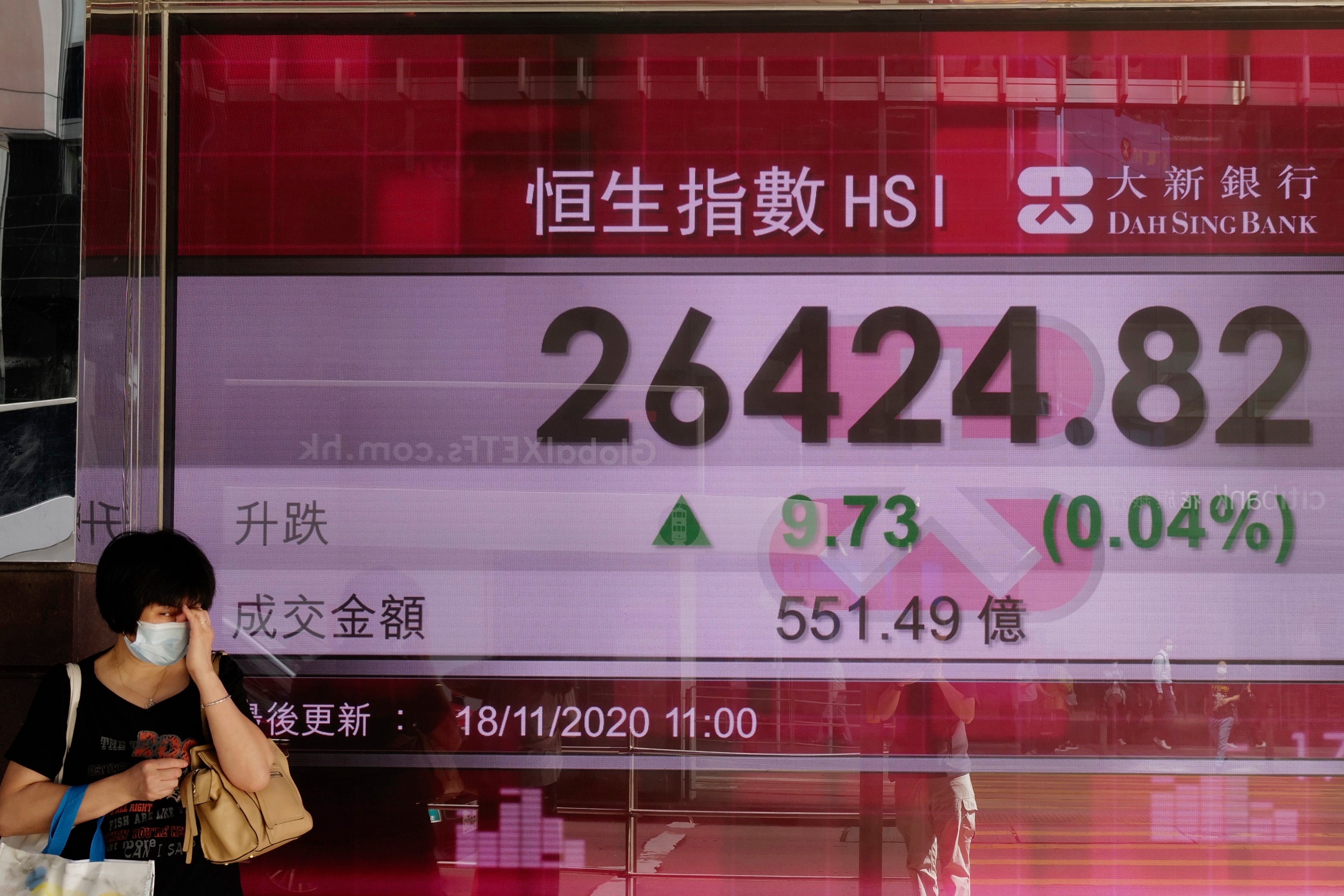Asian stocks higher after Wall Street falls on virus worries
Asian stock markets are mostly higher after Wall Street declined as worries about the long-term impact of the coronavirus pandemic tempered hopes for development of a possible vaccine

Asian stock markets were mostly higher Wednesday after Wall Street declined as hopes for a possible coronavirus vaccine were tempered by worries about the pandemic's lingering impact.
Shanghai, Hong Kong and Seoul advanced while Tokyo declined.
Traders have been encouraged by announcements about possible progress toward a coronavirus vaccine. But growing infection numbers in the United States and Europe has raised the threat of renewed restrictions on business and movement.
“The reality of rising COVID-19 cases got hold of financial markets,” said Mizuho Bank in a report.
The Shanghai Composite Index gained 0.5% to 3,355.69 and the Hang Seng in Hong Kong added 0.6% to 26,572.66.
The Nikkei 225 in Tokyo lost 0.8% to 25,808.35 after data showed exports declined 0.2% in October from a year earlier.
The Kospi in Seoul advanced 0.2% to 2,545.24 and Sydney's S&P-ASX 200 added 0.3% to 6,520.80.
India's Sensex opened down less than 0.1% at 43,948.81. New Zealand declined while Southeast Asian markets advanced.
On Wall Street, the benchmark S&P 500 fell 0.5% from a record to 3,609.53 after data showed U.S. retail sales rose 0.3% in October, down from September’s 1.6%. The figure fell short of forecasts for 0.5% growth.
That was “a warning shot that Covid-19 is still with us, and its effects will not miraculously disappear overnight,” said Jeffrey Halley of Oanda in a report.
The chairman of the Federal Reserve, Jerome Powell, said Tuesday the American economy has a “long way to go” before it returns to pre-pandemic levels.
Powell warned the “next few months may be very challenging." He said the Fed is committed to supporting a recovery.
Stocks that stormed higher this month on hopes that a vaccine or two may get the global economy back to normal next year receded.
Extra unemployment benefits that helped to support U.S. consumer spending have expired. Progress on a possible new aid plan in Congress is slow.
“The concern is that people will lose confidence in efforts to control the pandemic,” said the Fed’s Powell. “We’re seeing signs of that already.”
The Dow Jones Industrial Average also fell from a record, down 0.6% to 29,783.35. The Nasdaq composite slipped 0.2% to 11,899.34.
Pharmacy stocks were among the biggest decliners after e-commerce Amazon opened an online operation to compete with them. Rite-Aid lost 16.3% and Walgreens Boots Alliance dropped 9.6%. Amazon ticked up 0.1%.
Tesla rose 8.2% following an announcement that it will join the S&P 500 index next month. It is set to become one of the biggest stocks in the index after soaring nearly 390% this year.
In energy markets, benchmark U.S. crude lost 6 cents to $41.37 per barrel in electronic trading on the New York Mercantile Exchange. The contract rose 9 cents on Tuesday to $41.43. Brent crude, the standard for pricing international oils, added 1 cent to $43.76 per barrel in London. It lost 7 cents the previous session to $43.75.
The dollar declined to 104.08 yen from Tuesday's 104.21 yen. The euro edged down to $1.1862 from $1.1864.